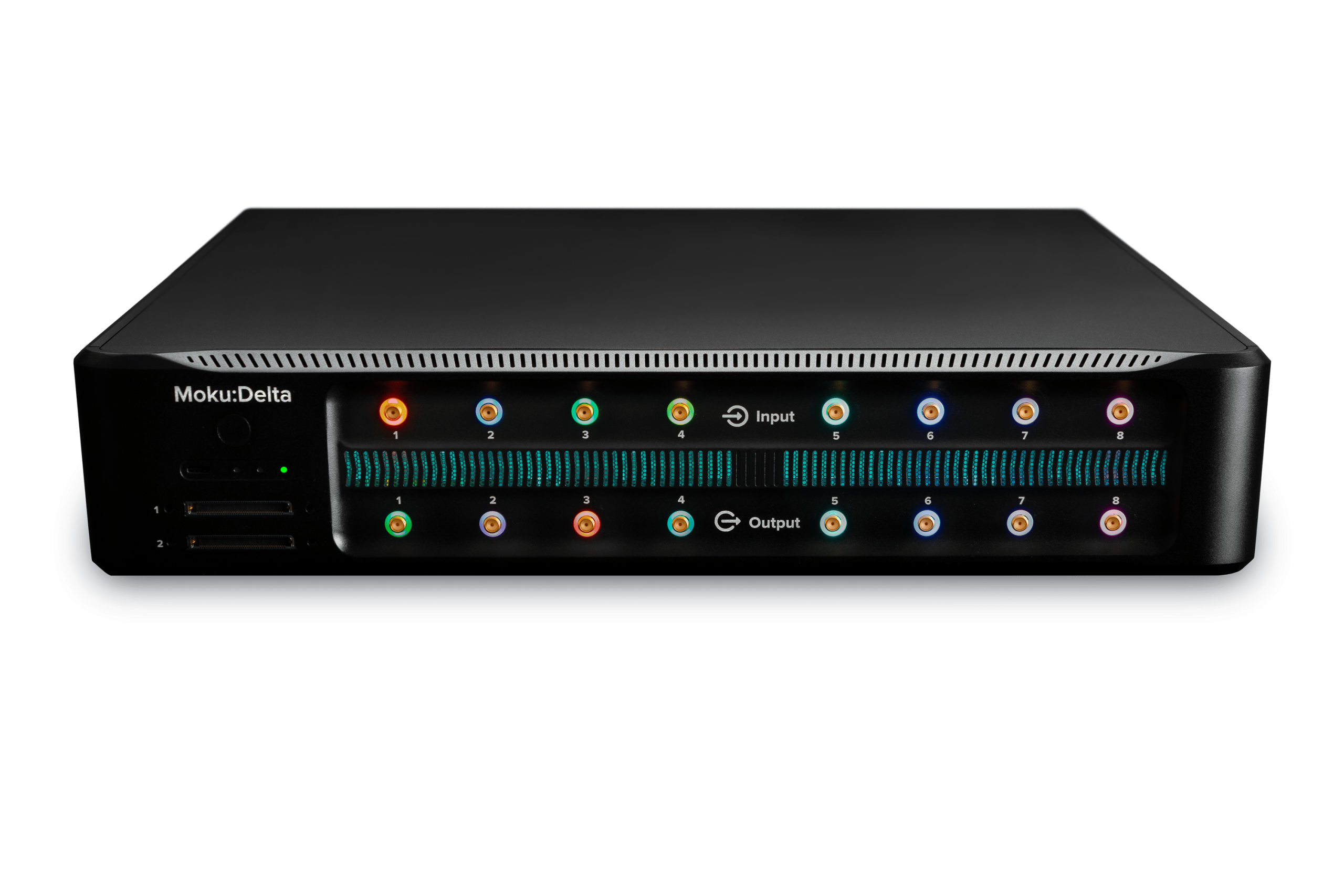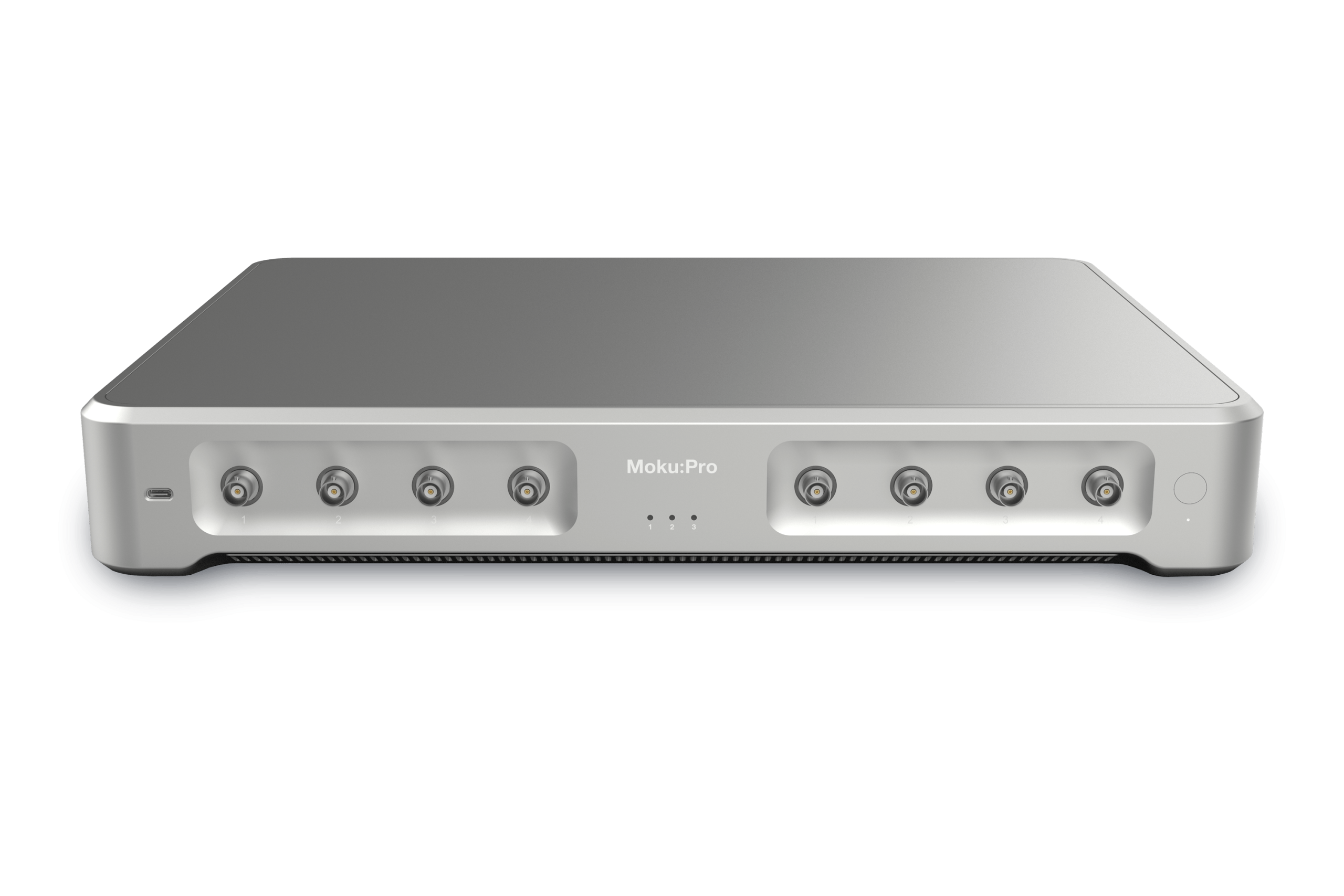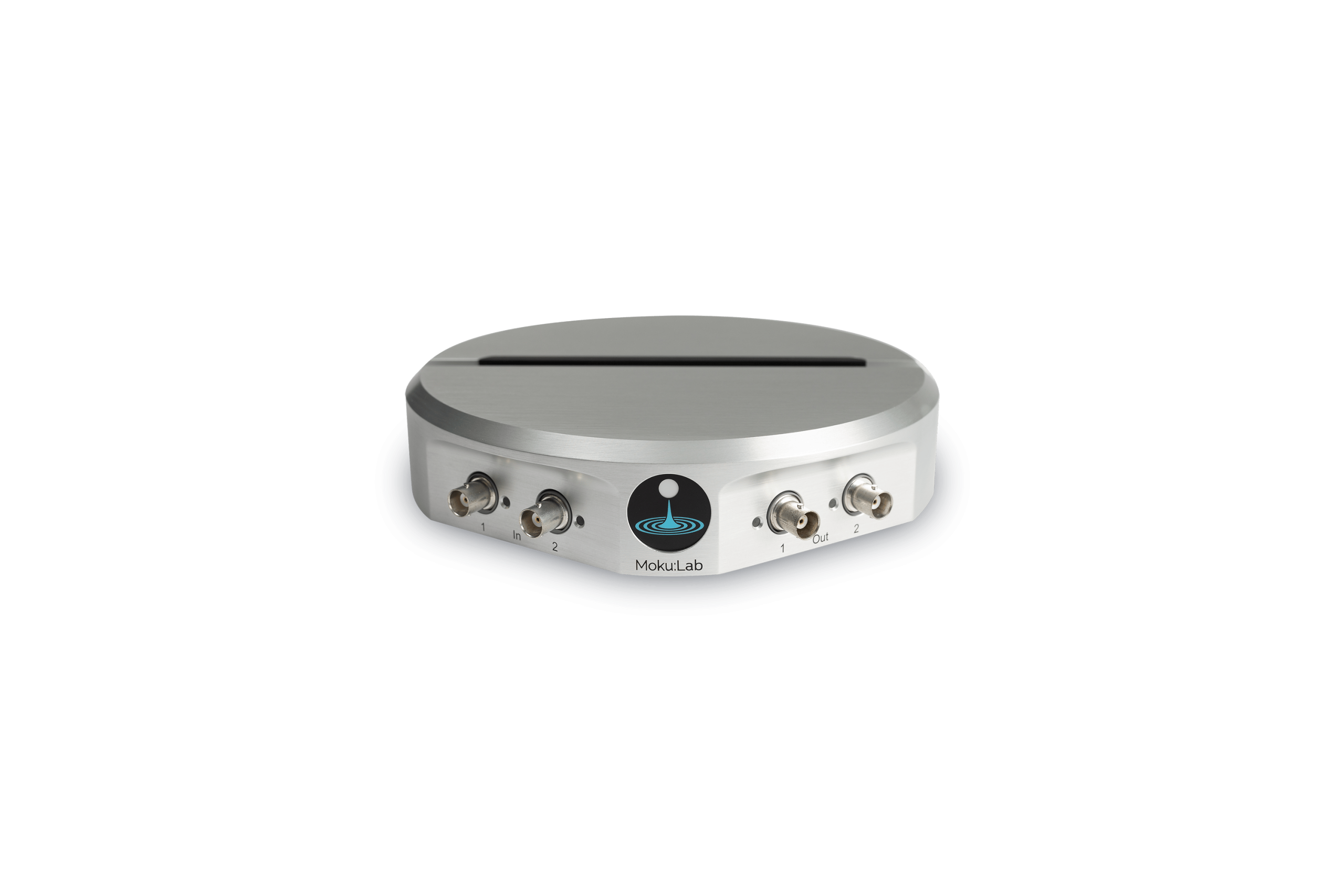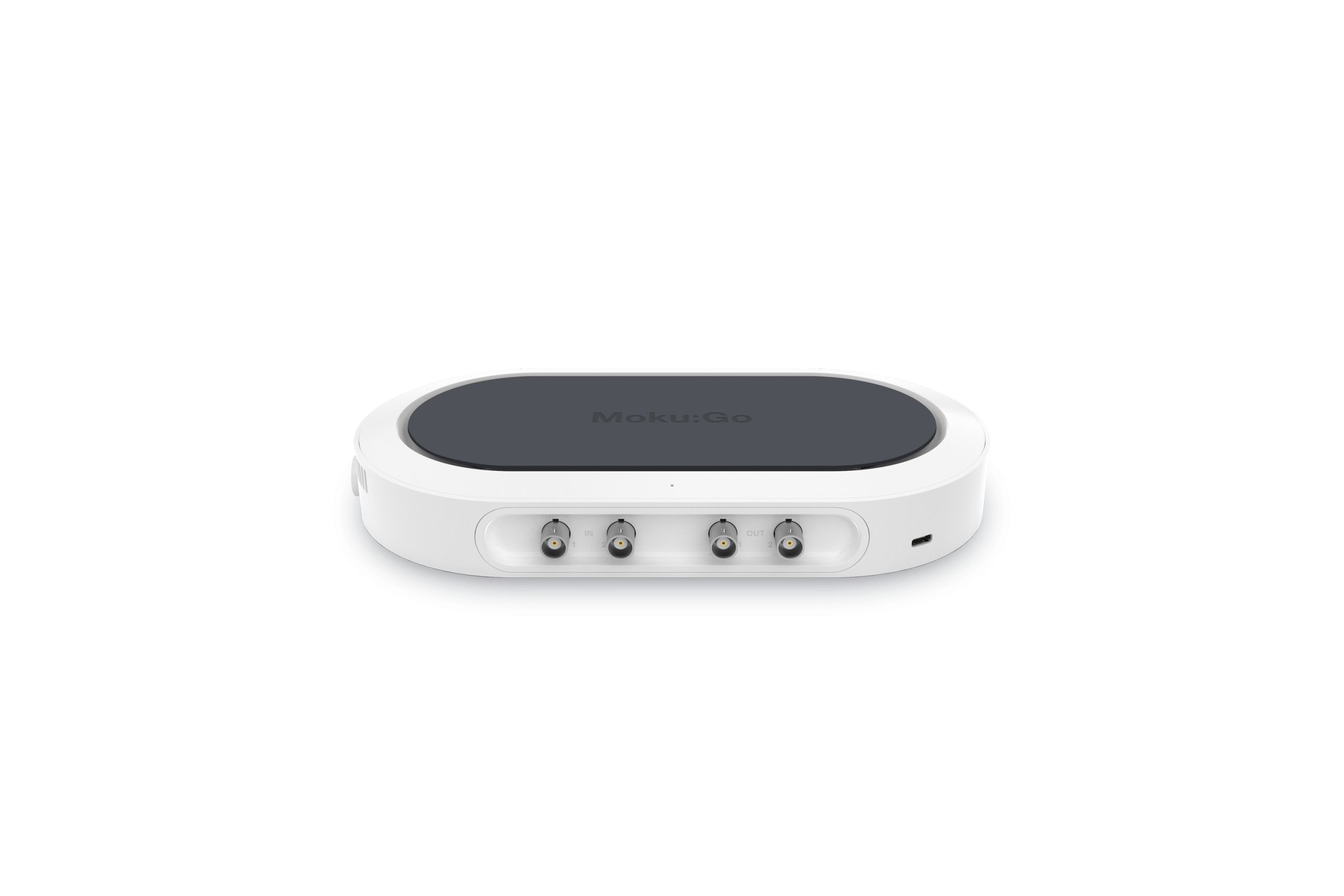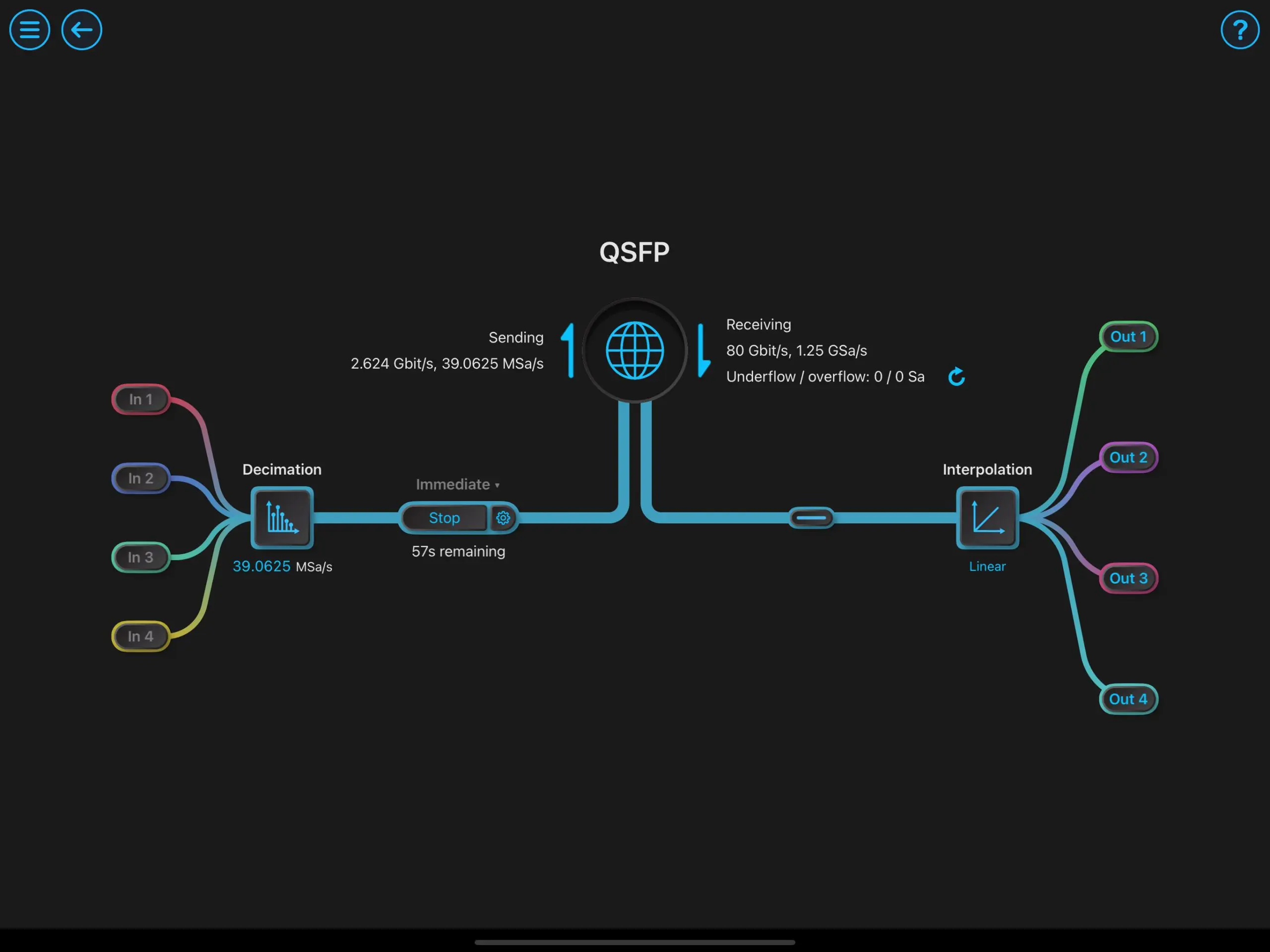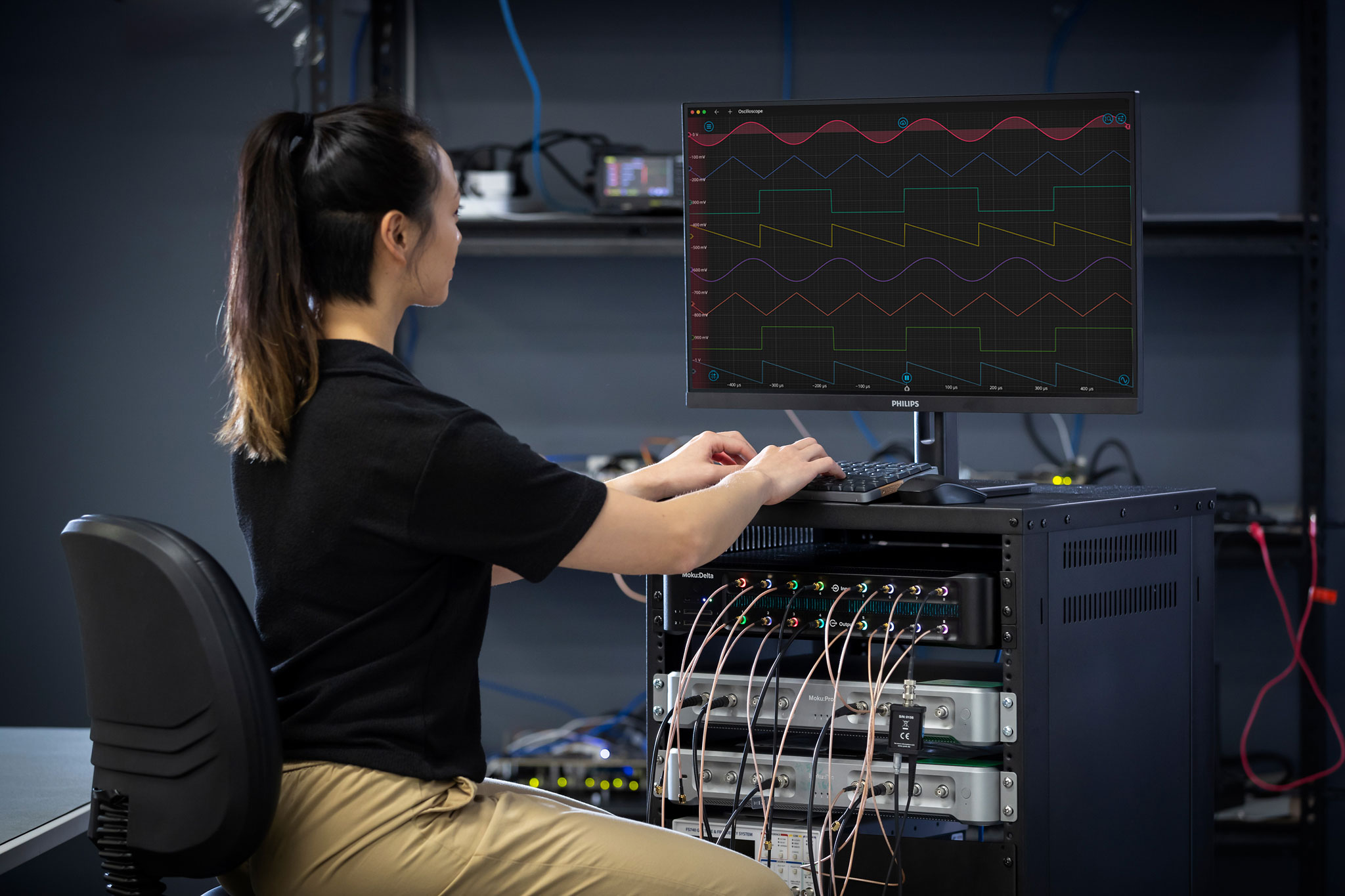Several Moku software upgrades are launching today — giving you new capabilities just in time for the new year!
A few weeks ago, we dropped our biggest software upgrade ever with Moku Version 3.1. Multi-Instrument Mode gained multi-window support and we brought a new instrument, the Logic Analyzer, to Moku:Pro and Moku:Lab. But with more exciting features in development, we didn’t want to keep you waiting.
Now, Moku Version 3.1.1 brings the most user-requested feature to your test bench — triggered data logging start is available to make your life easier when capturing time-sensitive measurements. Plus, Moku:Go now offers iPad support, so you can monitor all your Moku test devices from anywhere in the lab. Last, but certainly not least, the CAN protocol is available, so you can hit the gas for faster and more flexible automotive testing.
Use triggered data logging start to simplify time-sensitive measurements
This year’s most requested feature is now available! We’re happy to report that triggered data logging start (Figure 1) is now available for the standalone Data Logger instrument and all block-diagram instruments with an embedded Data Logger.
- It’s now much easier to selectively capture events of interest, with significantly reduced file sizes. You can also speed up data processing while eliminating the need for extensive post-processing to maximize efficiency when dealing with large datasets, especially in scenarios where precision is paramount.
- Triggered data logging start lets you easily synchronize multiple data loggers across different instruments.
- Quickly capture amplitude and phase information corresponding to external events, such as laser stabilization, mechanical stage settling in microscopy applications, external system excitations in optical metrology and optomechanical sensing, and time-sensitive measurements such as pulsed spectroscopy and qubit readouts.
For example, you can leverage this feature when using several Lock-in Amplifiers in Multi-Instrument Mode to simultaneously log demodulations of multiple harmonics — an ideal outcome for nonlinear optics and materials characterization applications.
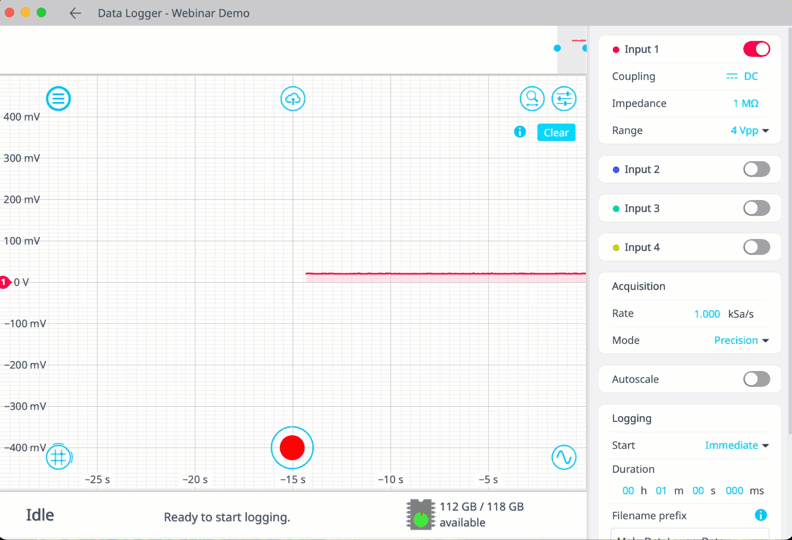
Figure 1: Triggered data logging start is now available for the standalone Data Logger instrument and all block-diagram instruments with an embedded Data Logger.
iPad support is now available for Moku:Go
To maximize the portability and user-friendly design of Moku devices, iPad support is now available for Moku:Go.
- With this upgrade, the entire family of Moku devices can be controlled seamlessly through the intuitive iPad UI. This enhancement is a game-changer if you need to prioritize flexibility when choosing your interface for on-the-go testing.
Yes, you CAN! New protocol accelerates precision automotive testing
The CAN protocol is now available in the embedded Protocol Analyzer feature within the Logic Analyzer instrument for all Moku devices. This enhancement strengthens automotive testing applications.
- Widely used in the automotive sector, the CAN protocol decoder enables signal integrity checks in the Oscilloscope and data integrity checks in the Protocol Analyzer. This comprehensive approach ensures a higher level of precision and reliability in critical automotive applications.
Upgrade your existing instrument stack at no cost
These new features are available for free for your Moku instruments through a simple software update. You can download the Windows and macOS app update here, or the iPad app here. For step-by-step instructions on updating, check out our Knowledge Base.
To add a new instrument to your Base Bundle package for Moku:Lab or Moku:Pro, or to your Moku:Go device, contact us or visit our webstore.
Questions?
Get answers to FAQs in our Knowledge Base
If you have a question about a device feature or instrument function, check out our extensive Knowledge Base to find the answers you’re looking for. You can also quickly see popular articles and refine your search by product or topic.
Join our User Forum to stay connected
Want to request a new feature? Have a support tip to share? From use case examples to new feature announcements and more, the User Forum is your one-stop shop for product updates, as well as connection to Liquid Instruments and our global user community.
